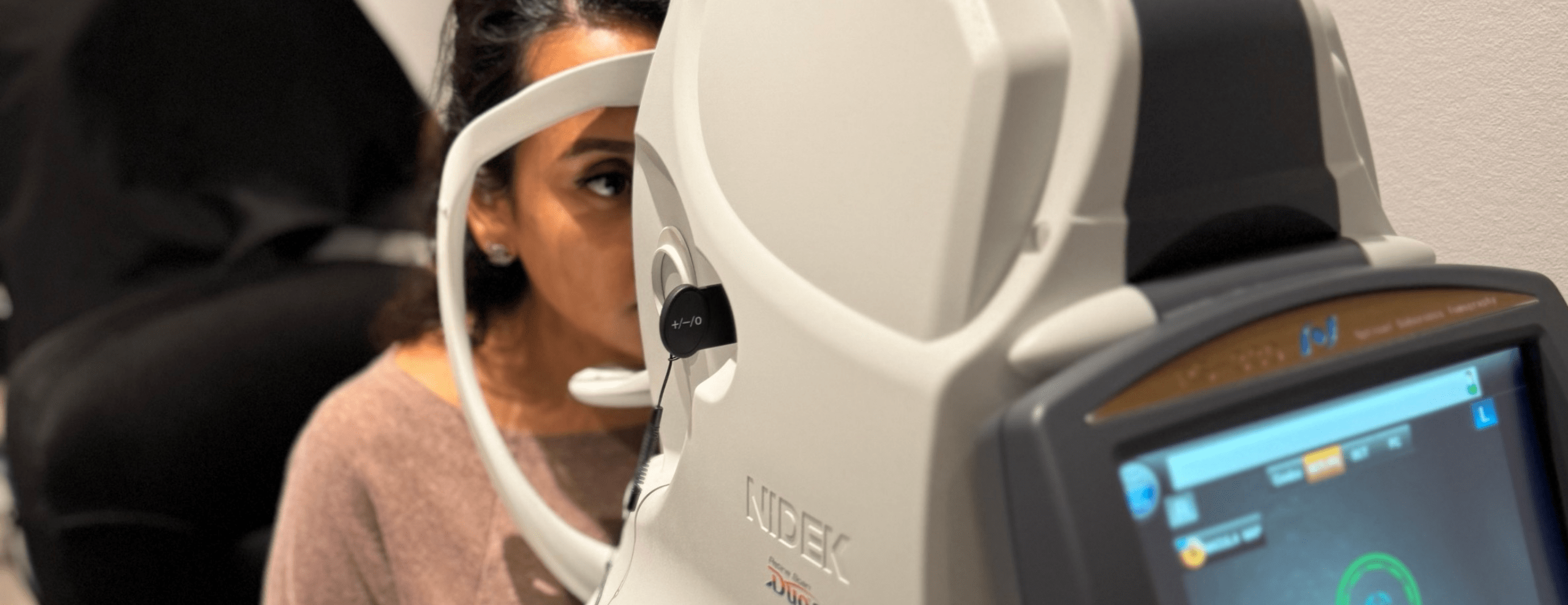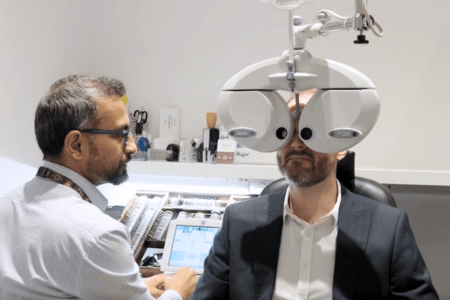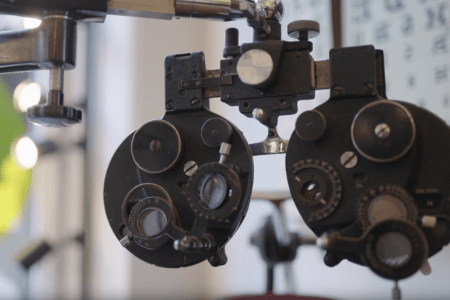
We are dedicated to delivering clinical excellence and providing the highest standard of eye care. That’s why earlier this year we invested in an advanced OCT eye health scanner and made OCT scans a mandatory part of every eye examination we do.
This technology enables us to observe high-resolution, live images of the eye, offering a comprehensive insight into the health of your eyes.
OCT scanning is highly effective for discovering eye conditions several years early and can be performed periodically to track changes and make comparisons over time.
What is an OCT scan?
Optical coherence tomography (OCT) is a non-invasive way to capture images. An OCT uses light waves to take a cross-sectional image of the eye, allowing the 9 retinal layers to be examined in detail. Our optometrists can then examine these deeper layers to get an even clearer picture of your eye health.
Benefits of an OCT eye test
There are many benefits to having an OCT 3D scan as part of your standard eye test.
OCT scans aid your optometrist to accurately identify vision-endangering eye conditions at an earlier stage, including glaucoma, diabetic changes and age-related macular degeneration. Certain conditions can be detected 5-7 years prior to the emergence of any noticeable symptoms.
All our eye examinations now include a retinal OCT alongside a thorough history, prescription check and ocular examination.
What conditions can an OCT scan help detect?
OCT helps diagnose many eye conditions, including:
- Glaucoma
- Diabetic changes
- Age-related macular degeneration
- High blood pressure
- Macular Edema
- Abnormal blood vessels
OCT is often used to evaluate disorders of the optic nerve as well.
Does OCT show cataracts?
No, an OCT scan typically cannot show cataracts as its the clouding of the eye’s natural lens. The diagnosis of cataracts is usually made during a comprehensive eye examination by an optometrist through other techniques.
Is an OCT scan worth it?
For most people, vision is their most important sense and the thought of losing their sight would be worse than losing another other sense. For that reason alone, incorporating an OCT scan which can help detect eye health conditions even before symptoms should be considered a valuable addition to your regular vital health checks.
I am quite young, should I have an OCT scan? Or is it for older people?
OCT scans are recommended for anyone aged 25 or older. It’s really beneficial for your optician to take readings and track your eye health every time you come in. This helps us build up an image of your eye health over time and is the best way to safeguard your eye health.
How often should you have an OCT scan?
We recommend that you schedule your regular eye examination, complete with an OCT scan, on an annual basis. However, if your eyes are in good condition, having this examination every two years is acceptable. Our optometrists will offer guidance if they deem it necessary to see you before a year has passed.
By undergoing an OCT Scan, even when your eyes appear in good health, we can maintain a record of your eye images. This way, even the slightest changes, if they occur, can be detected as early as possible.
Does an OCT scan hurt?
No, the scan is non-invasive, which means it doesn’t touch your eye. It is quick, painless and doesn’t hurt. An OCT scan is suitable for everyone and has many health benefits, which is why we made the decision to include one within every eye examination done at Whitby & Co. Optician.
Booking an OCT 3D Scan at Whitby & Co. Optician
As all eye examinations include an OCT scan, simply book your regular eye examination either online, by phoning +44 20 7353 4455 or by emailing reception@whitbyandco.com and an OCT scan will form part of your check-up.
How much does an OCT scan cost?
At Whitby & Co. our eye examinations include an OCT scan. More information on our eye examination and the cost can be found here.





